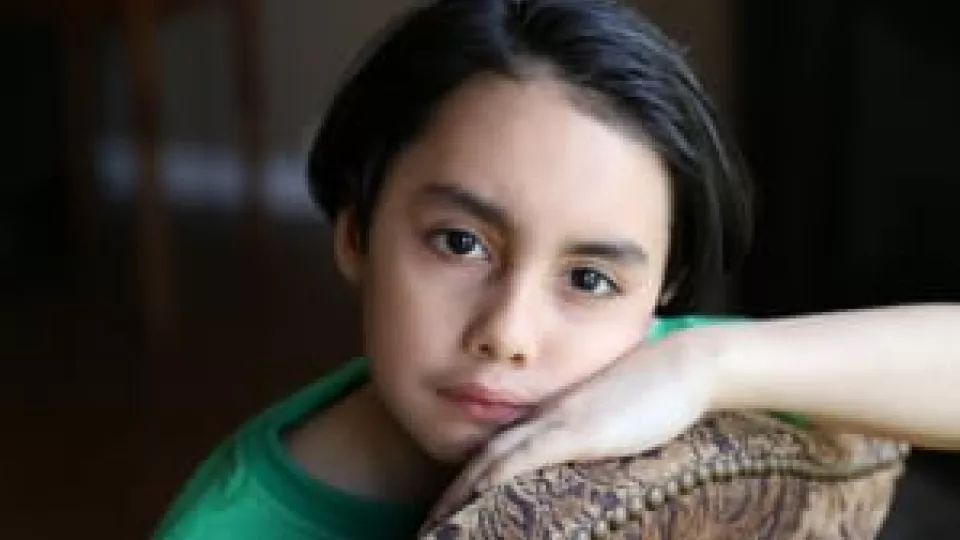
Is My Child Depressed?
Co-written by Stephanie N. Marcy, PhD, psychologist and assistant professor of Clinical Pediatrics at Children's Hospital Los Angeles
Many people believe that children may not have the emotional depth to become depressed. However, it is estimated that five percent of children suffer from depression at any given time. The good news is that depression in children is highly treatable, so as a parent, it is important to be able to recognize symptoms of depression so your child can get help as soon as possible.
What causes depression in children?
While it is normal to feel sad or down sometimes, if a child feels down more days than not even when nothing “bad” has happened, you should consider talking to your child’s physician about depression. The factors associated with childhood depression are the same as those for adults. Genetic and biological factors play a big role, and depression often runs in families. Certain differences in the brain, particularly the availability of certain neurotransmitters (or chemical messengers), can make people more vulnerable to becoming depressed. In addition, life events or circumstances can trigger depression, including:
- Changes in physical health (like an injury, illness, or diagnosis of chronic illness)
- Illness of a family member or loved one
- Traumatic life events, including loss and grief
- Significant change (moving, switching schools)
- Environment
How can I tell if my child is depressed?
Symptoms of depression in children can appear different than those of adolescents or adults. Children may lack the ability to verbalize their feelings, so often changes in their behavior are the only indication.
Parents should look for:
- Frequent headaches, stomachaches or generalized pain that persist without a medical cause
- Persistent feelings of sadness, moodiness or irritability (irritability may be more evident than sadness)
- Changes in eating patterns (eating too much or very little)
- Changes in sleeping patterns (too much, too little, or waking up in the middle of the night)
- Behavioral regressions (like going back to thumb sucking or wanting to sleep with parents)
- Development of problems with schoolwork, such as a drop in grades
- Stopping participation in activities they previously enjoyed
- No longer wanting to be with family or friends
- Expression of feelings of inappropriate guilt or a sense of worthlessness
While it is normal for most children to experience these behaviors from time to time, when multiple symptoms are seen together almost every day, it might mean your child is depressed.
What should I do if I think my child is depressed?
If you are worried that your child is depressed, you should first make an appointment with your child’s pediatrician. A thorough examination can insure your child is not suffering from a physical ailment. If the doctor suspects depression, your child should be evaluated by a mental health professional. Treatment for a child who is depressed is commonly individual and family therapy, which is provided by a licensed mental health professional such as a psychologist or clinical social worker. And always remember—depression is a true illness just like diabetes or an infection, and not a condition that usually goes away without intervention.
What can you do to help your child if they are depressed?
In addition to following up with a mental health provider for treatment, you can do the following to support your child’s recovery from depression:
Encourage health:
- Provide a healthy diet.
- Encourage regular physical activity and exercise.
- Develop routines that allow for adequate rest and sleep.
- Reduce screen time (TV, videogames, personal gaming devices).
- Encourage participation in social activities such as sports to develop positive connections with others.
- Make sure your child is not using drugs or alcohol, which could produce or exacerbate depressive symptoms.
Be supportive:
- Reinforce good behavior.
- Praise for effort rather than outcome.
- Spend meaningful one-on-one time with your child.
- Encourage assertiveness and self-advocacy.
- Listen to them without correcting or judging.
- Focus on your child’s strengths.
Provide for safety:
- Investigate any instance of bullying your child may be experiencing.
- Examine recent changes or losses in your child’s life.
- Make sure your expectations and demands of your child are realistic and not overwhelming to them.
- Lock up medicines, weapons and alcohol.
- Assess your child for suicidal thoughts by asking open-ended questions in a non-threatening way. (Expression of a true desire to die should be considered an emergency.)
- Communicate with your child’s teacher and school to promote support in the academic setting, and to get consistent feedback on how he or she is acting at school.
Help your child learn thinking and coping skills:
- Explore activities that help your child relax.
- Help your child express and describe their feelings.
- Help your child look at problems realistically and encourage effective problem solving.
- Help your child break big problems into smaller parts so they are less overwhelmed or avoidant.
- Get recommendations from the health provider for age-appropriate books about depression that you can read with your child to open up communication and normalize his or her experience.
As a parent is important to understand that children can suffer from depression, recognize the symptoms and seek treatment in a timely manner so your child may continue to grow physically and emotionally in a healthy way.


